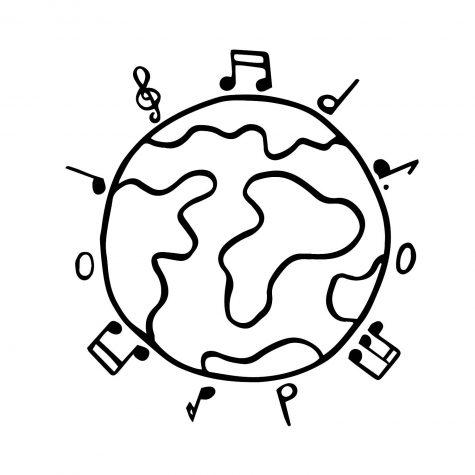Music: a gateway to cultural awareness
December 19, 2018
At sixteen years old, after paying five dollars for my grandpa’s car and being handed over the keys, my newfound independence was overwhelming, as is expected for teenagers. However, this independence was not what amazed me most. Instead, it was the outdated interior of this 1999 Corolla where no touch screen or USB port lined the dashboard—just a clunky cassette player. And as a result, soon after receiving this car, I also inherited my parents’ collection of cassettes from the 60s and 70s.
And now, all I listen to are my cassettes; I can’t even remember the last time I turned on the radio in my car. Whenever I drive, I am serenaded by the sounds of The Mamas & The Papas, Bob Dylan, and The Byrds, among many others. These are artists I ordinarily would not have taken interest in, but, because of my vehicular circumstances, I listen to daily. And, through these cassettes, this music has taught me an immense amount of information about the social climate of its respective decades.
I have also been prompted by this music to do more research into the Vietnam War, the hippie counterculture, and the famous Woodstock music festival. For me, music has acted as a gateway into the history of another generation. But even so, the majority of the music I listen to, like many others, is from the United States—if we listened to music from different countries as well, a remarkable amount of knowledge of other cultures would certainly be gained.
With xenophobia more prevalent than ever, our world is particularly disconnected, and it is becoming increasingly important to have a greater understanding of other cultures. To achieve this, music can be used to alleviate fear and build a more connected nature throughout the globe.
Being a universal concept, music is relatable—every culture uses music as a form of expression. So, listening to music from other countries is not too extreme of a step for the general population to take in order to develop cultural awareness.
This different music can also give us a glimpse into the history, current political environment, and social movements of a country. For instance, by listening to Argentinian tango singer Carlos Gardel’s smooth, deep tones, we are encouraged to discover how he led tango’s transition from an instrumental to vocal genre in the early 20th century. Additionally, the music of South African singer Miriam Makeba conveys her role as an anti-apartheid activist in the 1960s through 90s. Even without understanding the languages Makeba sings in—which include Swahili, Portuguese, and Xhosa—it is intriguing to listen to the powerful vibe conveyed through her songs and to encounter new instruments and spoken sounds, such as click consonants.
Music can be a starting point to help us develop an interest in learning about other cultures, and we should take advantage of this easily available resource to promote a more inclusive and connected world.


